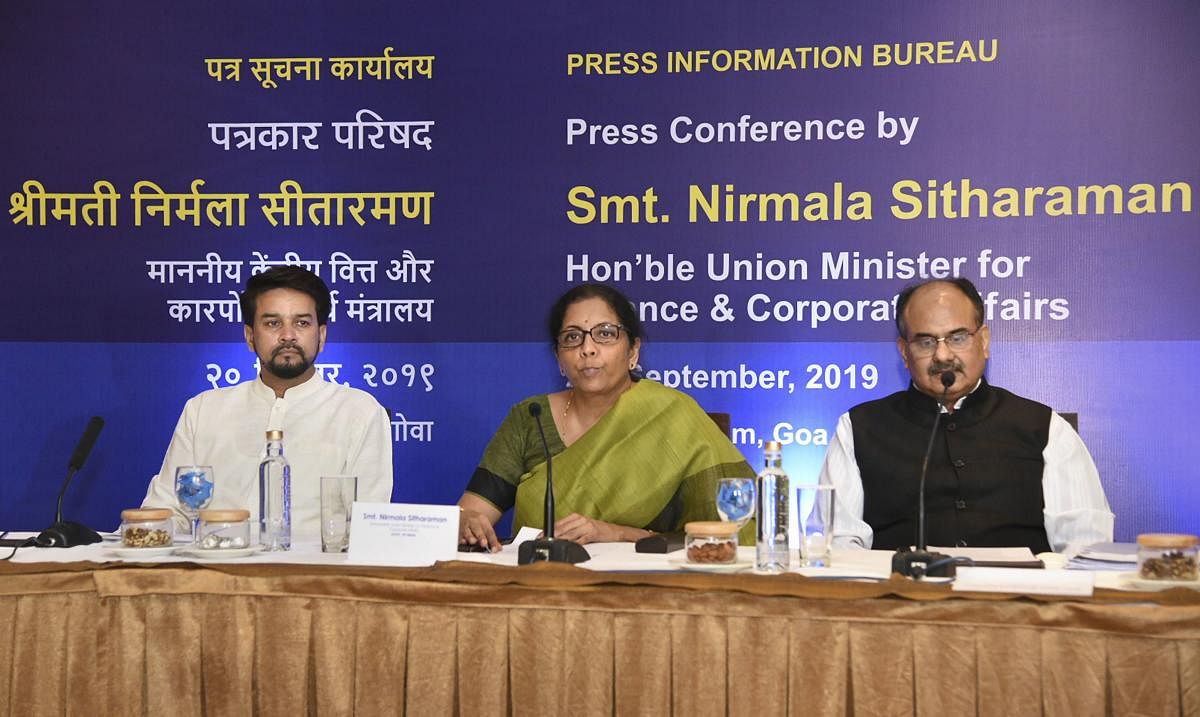
In the backdrop of the sluggish economy, faltering Gross Domestic Product (GDP) growth, consumption slowdown and trade tensions, the Finance Minister Nirmala Sitharaman has announced significant measures to fuel the growth of the Indian economy.
To begin with, corporate tax rates have been slashed from 30 per cent to 22 per cent (making the effective tax rate 25.17 per cent with effect from FY 2019-20) for companies not availing any exemption/incentive. To add to the bounty, such companies shall also not be required to pay Minimum Alternate Tax (MAT). However, it needs to be seen whether MAT credit accumulated, if any, will be available going forward.
The intention to reduce corporate tax rates can be traced back to the year 2015 when the then finance minister had promised that the corporate tax rates would be gradually lowered to 25 per cent over a period of four years, during which period exemptions available to companies would be phased out. Over the past few years, tax incentives have largely been phased out and the tax rate has been reduced for companies with turnover not exceeding Rs. 400 crore. With the kind of corporate rate cuts announced now, which goes beyond what was announced in 2015, India has become a competitive destination even on the corporate tax front.
Further in order to promote the ‘Make-in-India’ initiative and address the slowing demand in the manufacturing sector, the tax rate for new domestic manufacturing companies incorporated on or after October 1, 2019, not availing any exemption/incentive, has been reduced to as low as 15 per cent, with no MAT for them as well. With such significant rate cuts, the government has rolled out a red carpet to attract massive investments in the manufacturing sector.
Amidst all these announcements, there is also something to cheer about for companies availing exemptions/incentives. While there will be no change in the corporate tax rate for such companies, in order to provide relief to them, the MAT rate has been reduced from 18.5 per cent to 15 per cent. Further, such companies can avail the benefit of a lower rate post the expiry of the tax holiday period. However, it is important to note that the option of applying the lower rate of 22 per cent (effective rate of 25.17 per cent), once exercised, cannot be subsequently withdrawn.
Moving on, the Finance Minister has also announced measures to stabilise the flow of funds in the capital markets. In July 2019 Budget, the Finance Minister had introduced an enhanced surcharge on individuals earning more than Rupees two crore. For individuals earning more than Rupees two crore but less than Rupees five crore, the surcharge was enhanced to 25 per cent, whereas for those earning more than Rupees five crore, it was enhanced to 37 per cent. This created a despondency, hurting the sentiments of investors, especially the Foreign Institutional Investors (FIIs)/Foreign Portfolio Investment (FPIs).
However, now the enhanced rate of surcharge shall not apply on capital gains arising on sale of equity shares or unit of equity-oriented mutual funds or business trust, which are liable to STT, in the hands of individuals, HUFs and trusts. The enhanced surcharge shall also not apply to capital gains arising on sale of any security including derivatives, in the hands of FPIs. This decision will surely put a halt on the selling spree of the FPIs and magnify more investment in the Indian markets. Further, the FM also announced that buyback tax shall not apply to listed companies which have already announced buyback before July 5, 2019.
The government has also decided to expand the scope of corporate spend under CSR norms. Companies can now spend the 2 per cent CSR on incubators funded by the Centre or State or any State-owned companies and on certain public-funded universities, laboratories and autonomous bodies engaged in conducting research in science, technology, engineering and medicine.
All in all, the government seems to have bet Rs. 1.45 lakh crore to revive the Indian economy. The announcements made on September 20 coupled with the relaxations in the FDI norms are likely to spur the crippling investment cycle. It seems that Diwali has arrived early and the gloomy period of the Indian economy may soon fade with the firecrackers released by the FM today.
(Himanshu Parekh is Partner and Head, Corporate and International Tax, KPMG, India. Maulik Mehta and Ravish Kotadia, both chartered accountants, contributed to this piece)
The views expressed above are the author’s own. They do not necessarily reflect the views of DH.